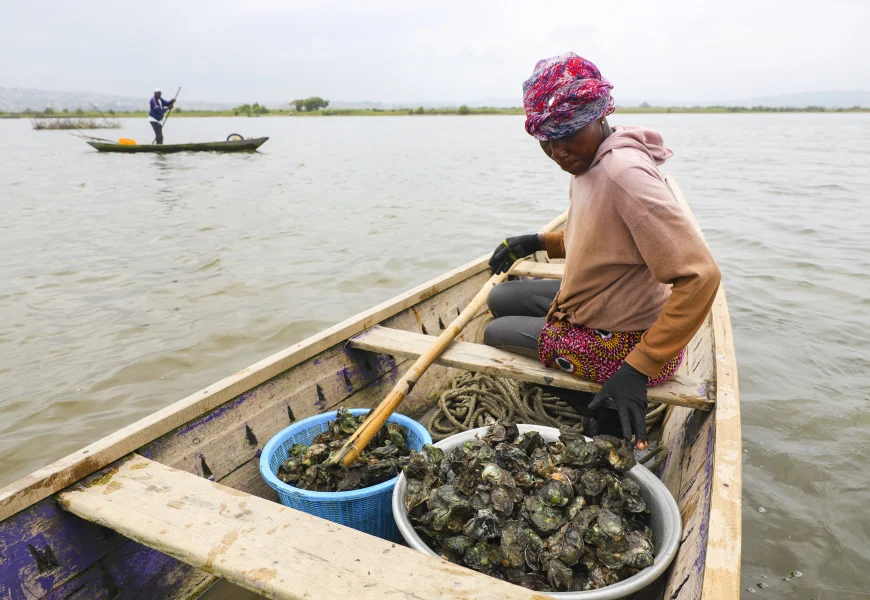TSOKOMEY, Ghana (AP) – Beatrice Nutekpor weaves through the mangroves in Tsokomey community, just outside of Ghana’s capital of Accra, every day to harvest oysters for sale. It’s a family tradition she’s been doing since she was 15. Now 45, she is struggling to sustain the practice and pass it to her daughter.
In coastal Ghana, female oyster farmers try to save an old practice threatened by climate change
TSOKOMEY, Ghana (AP) – Beatrice Nutekpor weaves through the mangroves in Tsokomey community, just outside of Ghana’s capital of Accra, every day to harvest oysters for sale. It’s a family tradition she’s been doing since she was 15. Now 45, she is struggling to sustain the practice and pass it to her daughter.
In Ghana’s coastal mangroves, oyster farming has been a key source of livelihood dominated for ages by women. Hundreds of women were trained in eco-friendly farming methods for oysters, including mangrove planting and preservation, and selective oyster harvesting, to lessen the impact of climate change.
Mangroves, trees or shrubs that grow along coastlines serve a critical multifunctional purpose in the aquatic ecosystem, ranging from being a home to fish to providing a buffer for coastal erosion from rising sea levels, and protection to land during storms and cyclones.
However, training by the Development Action Association nonprofit has ended after it lost its U.S. aid as a result of U.S. President Donald Trump’s decision to cut foreign aid contracts. It left the women to try what they can to keep their generational practice and sustain their families as Ghana emerges from its worst economic crisis in a decades.


